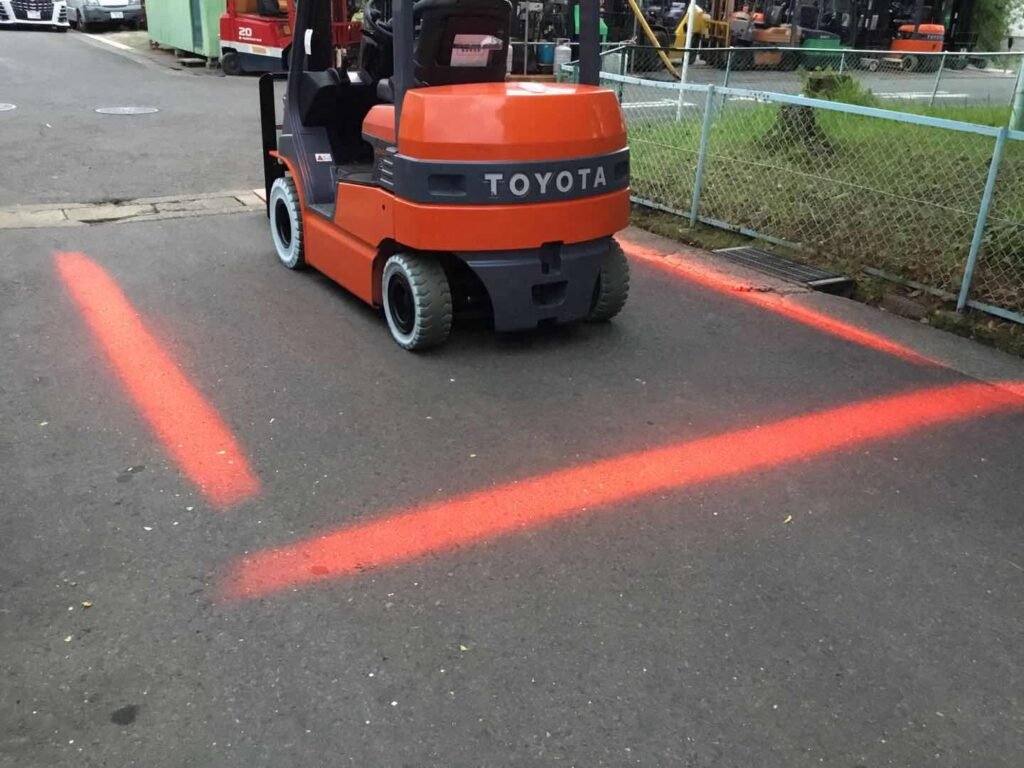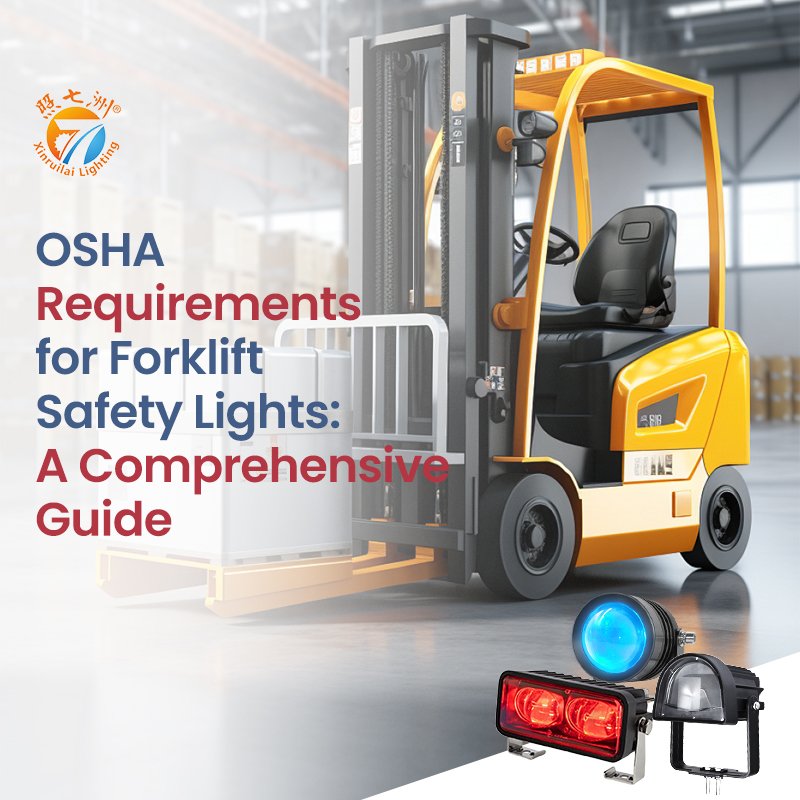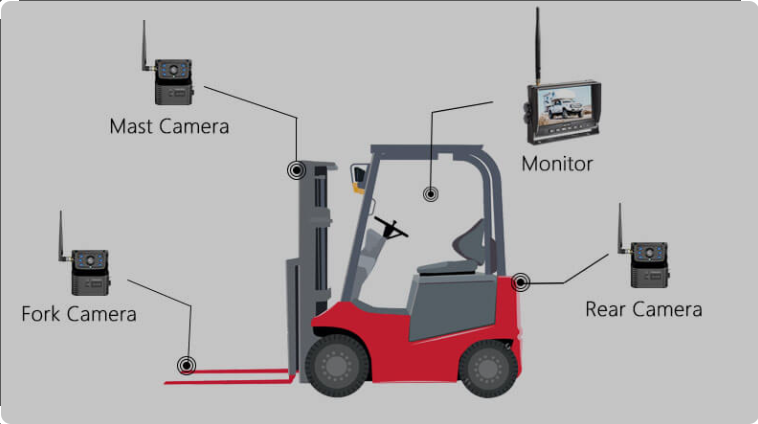Table of Contents
Summary:Forklift lights play a crucial role in ensuring safety and compliance in industrial operations. To meet industry standards and enhance workplace safety, forklift light certification is a must. This certification process ensures that forklift lights adhere to specific regulations, improve reliability, and maintain operational safety. In this article, we’ll delve into why forklift lights need certification, the different types of certifications available, and the importance of staying compliant.
1. Why Do Forklift Lights Need Forklift Light Certification?
Forklift lights are essential safety features that help prevent accidents in busy industrial environments. Certification for forklift lights ensures that these lighting systems meet rigorous safety and performance standards. Without proper certification, there’s a higher risk of using lights that may not perform reliably in harsh working conditions, potentially leading to accidents, fines, or downtime.
2. The Importance of Forklift Light Certification
2.1 Enhance Safety Standards
Certified forklift lights help enhance safety standards in the workplace. By implementing certified lighting solutions, businesses can minimize the chances of accidents caused by poor visibility. These certifications confirm that the lights are durable, reliable, and suitable for industrial operations.
Incorporating advanced lighting systems with proper certification also helps companies train employees on the importance of maintaining proper forklift lighting. Training employees ensures they understand how certified lights contribute to a safer work environment, reducing accident risks even further.
2.2 Ensure Regulatory Compliance
Forklift light certification ensures regulatory compliance with various industry-specific rules and standards. Governing bodies have laid out specific guidelines for forklift lighting to ensure safety. These regulations can vary by region, but adhering to them helps avoid penalties and legal issues.
By keeping up with the latest compliance requirements, companies can document their certification processes and show proof of adherence to established safety standards, protecting them from fines or operational shutdowns.
2.3 Improve Product Reliability
Certified forklift lights are designed for long-term reliability and durability. In challenging environments where forklifts are exposed to dust, water, and vibrations, certified lights maintain performance and reduce the need for frequent replacements.
Regular maintenance checks, coupled with certified products, ensure optimal performance. Businesses can also rely on user feedback to continuously enhance the design and functionality of their lighting systems, ensuring they perform well even in the harshest conditions.
3. Types of Forklift Light Certification
3.1 Understanding IP68 Standard
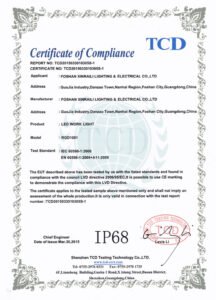
The IP68 rating is one of the most critical certifications for forklift lights, particularly in environments where exposure to water and dust is a concern. IP68 refers to the degree of protection against solid particles and liquids. Lights certified with IP68 are completely dust-tight and can withstand water immersion beyond 1 meter. This ensures the lights continue to operate in dusty and wet conditions, extending the longevity of the forklift lighting system.
3.2 Overview of CE Approval
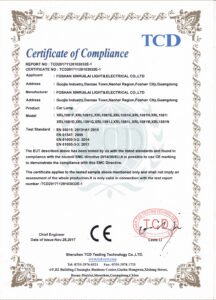
CE approval is a certification that indicates a product meets European Union health, safety, and environmental protection standards. Forklift lights that bear the CE mark comply with stringent safety regulations and are allowed for sale across Europe. For manufacturers, obtaining CE certification involves adhering to strict guidelines and undergoing rigorous testing to ensure that their products meet the necessary standards for safe use.
3.3 Insights on DOT Standards
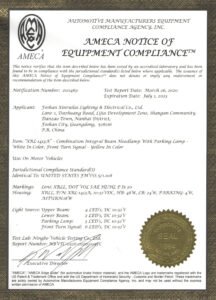
The Department of Transportation (DOT) is responsible for regulating vehicle safety, which includes lighting systems used on forklifts. DOT certification ensures that forklift lights meet the necessary safety and performance criteria for use in industrial operations. Compliance with DOT standards is crucial for maintaining operational safety, especially in environments where forklifts interact with other vehicles and workers.
3.4 Details on E9 Guidelines
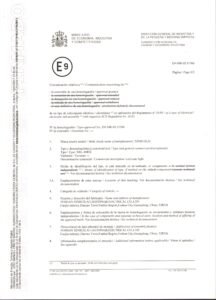
E9 guidelines pertain to the testing and certification of lighting systems, ensuring that they meet international standards for quality and performance. E9 certification is important for manufacturers and users alike, as it guarantees the lights have undergone comprehensive testing for safety and reliability. Forklift lights that comply with E9 guidelines are recognized for their quality, making them a safer choice in industrial settings.
3.5 Explanation of RoHS Rules
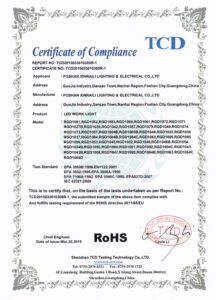
The RoHS directive (Restriction of Hazardous Substances) ensures that electronic products, including forklift lights, do not contain dangerous materials like lead, mercury, or cadmium. RoHS compliance promotes environmentally-friendly product design and manufacturing by restricting hazardous substances that could harm the environment. Forklift lights that comply with RoHS are safer to use and help reduce the environmental impact of industrial operations.
4. Frequently Asked Questions
4.1 What is the abbreviation of DOT?
DOT stands for the Department of Transportation, which is responsible for regulating safety standards in vehicles, including forklifts.
4.2 Which products require CE certification?
CE certification is required for products sold in the European Economic Area (EEA), ensuring that they comply with EU safety, health, and environmental standards.
4.3 Which country is the CE certification from?
CE certification originates from the European Union (EU) and is mandatory for products sold within EU member countries.
4.4 Where is the RoHS certification?
RoHS certification applies to products sold in the European Union (EU) and focuses on restricting hazardous substances in electrical and electronic equipment.
5. Conclusion
Forklift light certification is essential for maintaining safety, ensuring regulatory compliance, and improving the reliability of lighting systems in industrial settings. Certifications like IP68, CE, DOT, and RoHS demonstrate that a product meets the required safety standards and is built to withstand challenging conditions. By choosing certified forklift lights, businesses can enhance workplace safety, reduce the risk of accidents, and ensure long-term product performance.
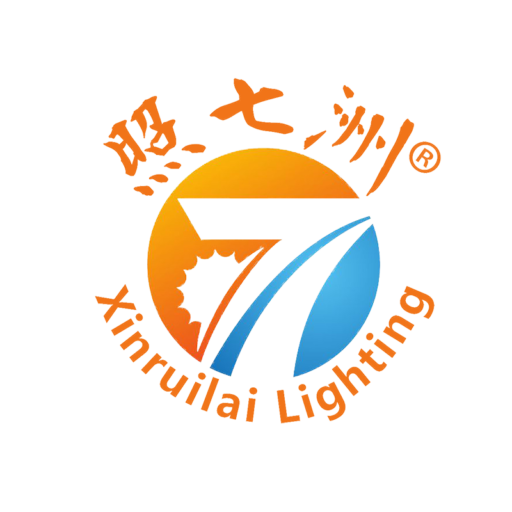
-1024x683.jpg)
